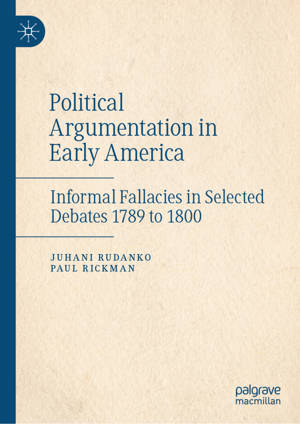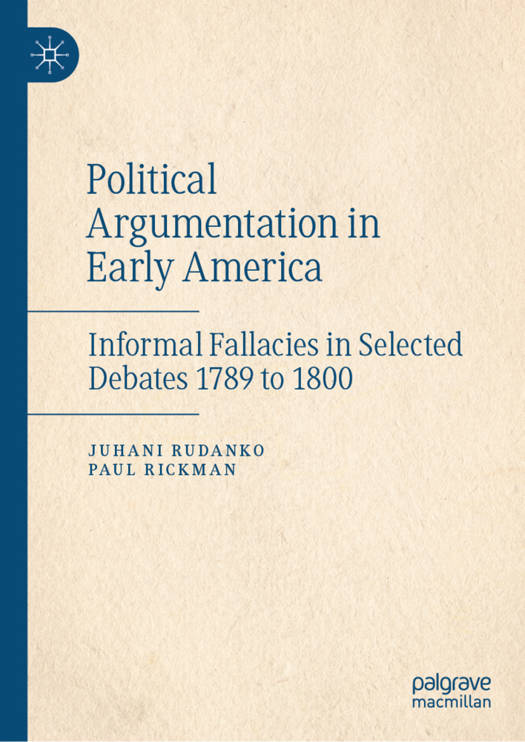
- Afhalen na 1 uur in een winkel met voorraad
- Gratis thuislevering in België vanaf € 30
- Ruim aanbod met 7 miljoen producten
- Afhalen na 1 uur in een winkel met voorraad
- Gratis thuislevering in België vanaf € 30
- Ruim aanbod met 7 miljoen producten
Political Argumentation in Early America
Informal Fallacies in Selected Debates 1789 to 1800
Juhani Rudanko, Paul RickmanOmschrijving
This book investigates the language used by protagonists in four major political debates in the early history of the United States. The first of these concerns the controversy in the first United States House of Representatives in the summer of 1789 on whether a proposal for a bill of rights should be considered in an expeditious fashion or whether the issue should be left till much later. The second is the principal debate on whether a sedition act should be enacted in July 1798, and the third concerns the enactment of the Logan Act of 1799. The fourth investigates the elections for the Legislature of the State of New York in the spring of 1800, which was the key event affecting the outcome of the presidential election of 1800. In each case there was a sharp disagreement between groups of politicians representing different points of view, and each event was significant from the point of view of the political history of the United States. The authors introduce these four debates, as well as the notion of informal fallacy - taken to designate an argument that is unsatisfactory in some way - before analysing deceptive fallacies and demonstrating how fallacy theory can be used as a critical tool in the examination of political argumentation. This book will be of interest to students and scholars of political communication, rhetoric and argumentation, US history and politics, and diachronic linguistics, especially diachronic pragmatics.
Specificaties
Betrokkenen
- Auteur(s):
- Uitgeverij:
Inhoud
- Aantal bladzijden:
- 175
- Taal:
- Engels
Eigenschappen
- Productcode (EAN):
- 9783031833342
- Verschijningsdatum:
- 20/03/2025
- Uitvoering:
- Hardcover
- Formaat:
- Genaaid
- Afmetingen:
- 161 mm x 215 mm
- Gewicht:
- 353 g

Alleen bij Standaard Boekhandel
Beoordelingen
We publiceren alleen reviews die voldoen aan de voorwaarden voor reviews. Bekijk onze voorwaarden voor reviews.












